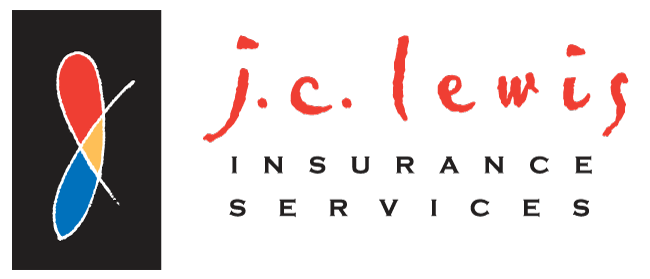As a small business owner you want to offer your employees the best medical insurance coverage options you can. Although it’s not legally required for small businesses to provide healthcare coverage, smart employers understand the value of doing so.
But this can definitely be costly, especially if you have few workers.
The Cost of Insuring Employees
Unfortunately, the fact that the costs of healthcare options can be challenging for many businesses means many of them decline to offer them.
According to data reported by Zenefits,
“According to recent insurance industry data, only 56% of companies with 200 employees or less provide some healthcare benefits to staff members. For small businesses, with 3 to 9 staff members, healthcare is provided for less than half. Compared to large companies, 98% of whom offer the benefit, small to mid-sized businesses are challenged to compete in the marketplace.”
In the course of researching your healthcare coverage options, you may come across terms such as “risk pools” and “adverse selection.” Let’s take a look at these terms and the concept of risk pooling and small business medical insurance.
Understanding Risk Pools
Risk pooling is a fundamental aspect of insurance. When it comes to health insurance, a risk pool is simply a group of individuals whose medical costs are combined for calculating their premiums.
By pooling risks together, the higher costs of the less healthy individuals can be offset by the relatively lower costs of the healthier individuals in the pool. This can be done either in the overall plan or within a premium rating category. Typically, a larger risk pool can provide more predictable and stable premiums.
However, this doesn’t necessarily result in lower premiums. On the contrary, the primary factor for determining premium rates is actually the average healthcare costs for individuals in the risk pool.
In other words, a small pool with mostly healthy individuals can result in lower-than-average premiums, while a larger pool with a large number of unhealthy individuals can result in higher-than-average premiums. The latter situation is also known as “adverse selection.”
Understanding Adverse Selection
According to the American Academy of Actuaries, adverse selection is described as,
“[A] situation in which an insurer (or an insurance market as a whole) attracts a disproportionate share of unhealthy individuals. It occurs because individuals with greater health care needs, when given the opportunity, are more likely to purchase health insurance and to purchase health insurance with richer benefits than individuals with fewer health care needs.”
This becomes a problem for both the insurer and the insured.
Not only does adverse selection result in higher premiums, these can then cause additional healthy individuals to opt out of coverage, which then results in even higher premiums. This dynamic is typically referred to in the industry as a “premium spiral.”
Ideally, risk pools are set up to minimize adverse selection and attract a broader base of healthy individuals instead. This allows the the costs of less healthy or sick individuals to be spread more equitably. Often this is accomplished by enrolling younger adults and healthier people of all ages to help keep the monthly premiums more affordable for all members in the risk pool.
Small Business Options
On June 19, 2018, the U.S. Department of Labor (DOL) expanded access to affordable health coverage options for America’s small businesses and their employees through Association Health Plans (AHP) as a result of President Trump’s Executive Order “Promoting Healthcare Choice and Competition Across the United States.”
An AHP works by allowing small businesses, including self-employed workers, to band together by geography or industry to obtain healthcare coverage as if they were a single large employer. AHPs can also strengthen negotiating power with insurance providers from leveraging larger risk pools and greater economies of scale.
Although being part of a larger group does often come with price reduction due to a larger risk pool, there are more reasons why these plans will likely be a lot cheaper.
Because AHPs are not subject to the rules under the Affordable Care Act (ACA), they do not have to offer the ten essential benefits required by the ACA. This means that women wanting maternity benefits, or and individual with a chronic illness, may not have covered access to everything they need with coverage from an association health plan.
In addition, unlike ACA rules, factors such as gender, age, and industry could affect prices for individuals being covered under an AHP. However, just as with the ACA, pre-existing conditions does not affect prices for those covered under association health plans.
Covered California offers small business owners options, as well.
The Small Business Health Options Program (SHOP) for employers is a marketplace to purchase group health insurance if they qualify for small business tax credits. Eligible employers must have fewer than 25 full time equivalent employees, pay average annual wages of under $50,000 per year, and able to pay at least 50 percent of employee premiums.
In addition, 70 percent of all eligible employees must enroll in the health plan unless they qualify for an eligible waiver by being insured through their spouses’ employer based coverage, for example.
Another option is Covered California for Small Business. This program is a part of California’s State Health Benefit Exchange. It allows employers with 100 or fewer full-time equivalent employees to access brand name health insurance plans in order to provide quality, affordable health coverage for their business.
Consult Your Local Professional First
Offering health insurance to your employees is a great way to keep and reward them by providing medical protection for both employees and their families. As such, we encourage you to consider a small group proposal with us prior to sending your employees to the California California.
J.C. Lewis Insurance Services offers a variety of affordable and flexible options allowing companies to choose portfolios and contribution options suited to their specific needs. Employers and employees may be better served under an employer-based policy because every group is different and, like many other things in life, it depends.

